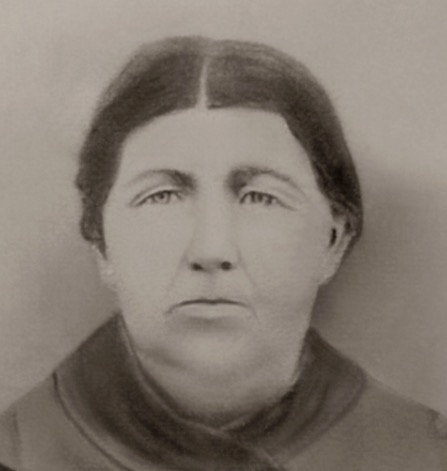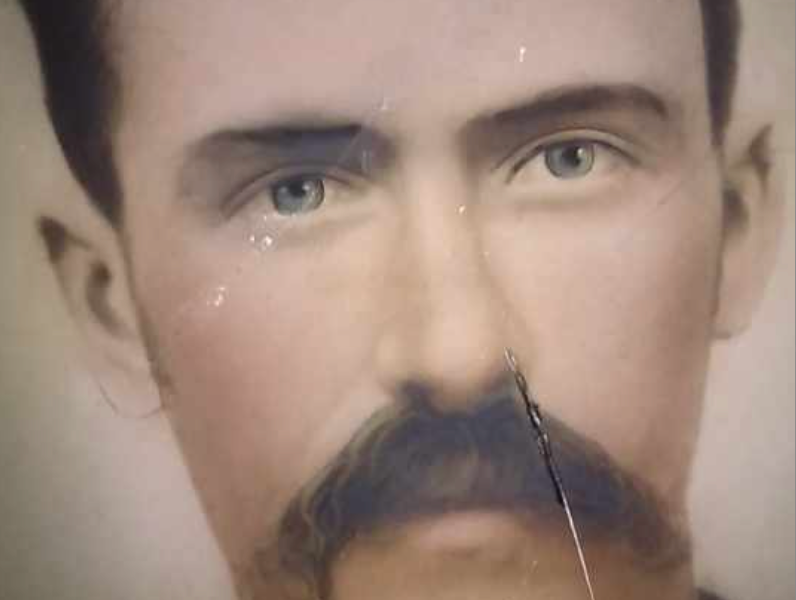 |
| Sign found in the mountains of Colorado. Taken and shared by Trena Ganus |
Have I saved letters and handwritten treasures from my childhood for nothing? Will they be readable and hold any value to my descendants? I used to think so, but now I’m not so sure.
I can’t help but notice that as my keyboarding skills and texting speed have increased (no thanks to auto-correct!) that my handwriting seems much less legible than it used to be. Not only is typing quicker, but as a society we seem to be gaining speed in our efforts to become paperless. While discussing this issue recently with some of my friends, one friend indicated that many public schools no longer even teach cursive handwriting! I had no idea and initially found it hard to believe, but after a few simple Google searches, I discovered that it is actually true.
While reading more recent handwritten material sometimes presents a challenge due to individual styles or sometimes even the lack of style, we nonetheless are able to read the majority of the handwritten material of more recent times because we are familiar with cursive, which was the accepted standard for many many years. What will happen when cursive is no longer familiar to those living? An instructor who works with groups who index documents recently shared with me that many young people actually need a website that shows cursive letters in order to read cursive writing even now.
Paleography, or the study of old handwriting has long been important to the serious genealogist, but it has traditionally been a study of writing from a much earlier time. When I took a Paleography course, I was surprised to see just how much handwriting has changed and evolved over the years, but will paleography eventually have to include what many of us older folks consider simple common cursive writing?
And here comes the troubling part. Will my descendants even one generation away need a paleography course just to read my handwriting? As I think of the letters that I have saved over the years such as choice letters from my parents during their missionary service in Papua New Guinea, letters from my grandmothers and letters from the boyfriend whom I eventually married, I wonder, will they hold any value to the generations that follow? Will they be too difficult to read, the writing too foreign to be worth the effort for others to try and wade through them? I find myself wondering if our grandchildren and their children can’t read our precious keepsakes then just what will happen to our letters?
Copyright © Michelle G. Taggart 2014




Michelle, to someone who cherishes the thought of preserving personal history to pass down to descendants many generations removed, this can be a horrifying thought! I've been concerned about preservation issues regarding the paper these keepsakes are written on–but the thought that ability to read could be hampered by mere lack of knowledge is quite sobering.
On the other hand, for those like me who are going through those old letters and transcribing them in a different type of attempt to save them, we are in no less of a predicament. What if the technology changes? What if the format in which we save our transcribed material becomes outdated–and thus inaccessible? Either way, we are faced with some potential challenges.
Sometimes, in this service of preservation of legacy and keepsakes, we can only do what we can do. Our ability to save these treasures is only as good as the intermediaries who take their place in a long line of those called to pass these things on to future generations. We are only one link in a chain. Upholding our responsibility may be our call, but we represent only one generation in a long chain of human history.
Sometimes, we just have to trust that someone will be there, willing to do what is necessary to insure the story is relayed to the next generation.
I hear ya! I loved practicing cursive in elementary school, but I don't think it is taught anymore, or at least not emphasized. With velcro, children don't learn to tie shoes. With digital clocks, saying "it's a quarter past …" makes no sense. Past perfect tense and commas are going away. Soon there will be nothing left with which to torture the children of tomorrow.
Michelle,
I want to let you know that your blog post is listed in today's Fab Finds post at http://janasgenealogyandfamilyhistory.blogspot.com/2014/03/follow-friday-fab-finds-for-march-7-2014.html
Have a great weekend!
You bring up some interesting points Jacqi. I guess part of me is just a little taken back to have just one generation away feel that our handwriting is foreign. But as you said, we need to trust that someone will be willing to put forth the effort to save and share. Thanks!
Thanks so much Jana! I love your blog!
Wendy I had the same thought! I loved learning cursive and remember writing things over and over, trying to make the letters pretty. Writing cursive was part of growing older!
You made me laugh too! I am sure they do look at a lot of the things that seem normal to us as archaic! Guess we will have to find something else to tease them with (while they laugh at us old folks!) thanks!